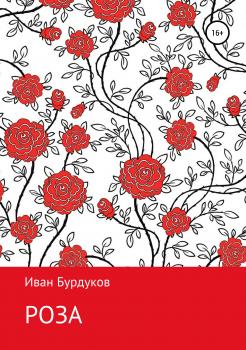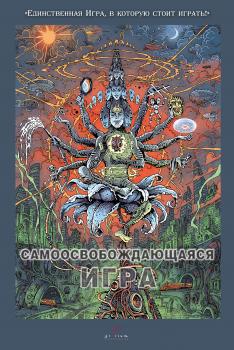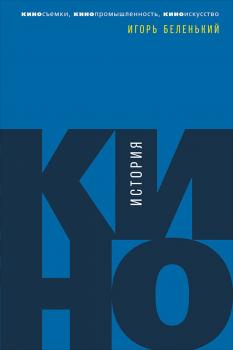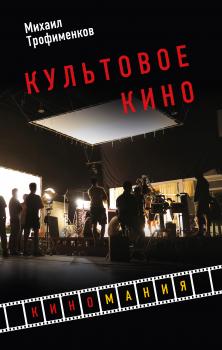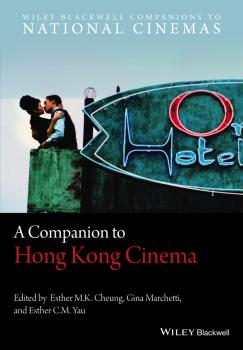Кинематограф, театр
Различные книги в жанре Кинематограф, театрРоза
Она хотела бы верить в настоящую любовь и настоящее счастье. Но всеми силами избавляется от этого желания, как от самой вреднейшей вещи на свете. В произведении идёт постановка по пьесе Эжена Ионеско «Король умирает».
A Companion to the Action Film
An authoritative guide to the action-packed film genre With 24 incisive, cutting-edge contributions from esteemed scholars and critics, A Companion to the Action Filmprovides an authoritative and in-depth guide to this internationally popular and wide-ranging genre. As the first major anthology on the action film in more than a decade, the volume offers insights into the genre’s historical development, explores its production techniques and visual poetics, and provides reflections on the numerous social, cultural, and political issues it has and continues to embody. A Companion to the Action Film offers original research and critical analysis that examines the iconic characteristics of the genre, its visual aesthetics, and its narrative traits; considers the impact of major directors and stars on the genre’s evolution; puts the action film in dialogue with various technologies and other forms of media such as graphic novels and television; and maps out new avenues of critical study for the future. This important resource: Offers a definitive guide to the action film Contains insightful contributions from a wide range of international film experts and scholars Reviews the evolution of the genre from the silent era to today’s age of digital blockbusters Offers nuanced commentary and analysis of socio-cultural issues such as race, nationality, and gender in action films Written for scholars, teachers and students in film studies, film theory, film history, genre studies, and popular culture, A Companion to the Action Film is an essential guide to one of international cinema’s most important, popular, and influential genres.
Самоосвобождающаяся Игра
Эта книга представляет собой введение в феномен игры. Единственный феномен, которому нас никто никогда не учил. Каждое мыслящее существо может представить игру, даже если в языке нет такого понятия. «Можно отрицать все абстракции: право, красоту, бога, все серьезное можно отрицать, но только не игру!» В своем труде «homo ludens» йохан хейзинга наглядно демонстрирует, что все сферы человеческой культуры (искусство, философия, наука, политика, юриспруденция, военное дело и т. д.) Находят свои корни в игре и играются с самого начала: «одна старая мысль гласит, – если проанализировать человеческую деятельность до самых пределов нашего познания, она покажется не более чем игрой». И все это указывает на естественный запрос в информационной оснащенности, позволяющей современному человеку обнаружить себя на равных с игровым многообразием современного мира. Что несомненно говорит о рождении новой парадигмы восприятия реальности, прихода так называемой эпохи игры.
История кино. Киносъемки, кинопромышленность, киноискусство
Каждый год в прокат выходит все больше фильмов, появляются новые имена и жанры. Чтобы разобраться в том, что сейчас происходит в кино, важно понимать, как кинематограф зародился и развивался. Историк кино, преподаватель Гуманитарного института кино и телевидения Игорь Беленький рассматривает основные этапы становления кинематографа: как кино стало искусством, боролось за звук, было пропагандой, пережило бурные шестидесятые и лихие девяностые. Это и история кинематографа, и разбор самых знаковых фильмов, и анализ ключевых событий во Франции, Германии, Италии, Великобритании, США, России и странах Азии.
Психология для сценаристов. Построение конфликта в сюжете
Работа над сценарием, как и всякое творчество, по большей части происходит по наитию, и многие профессионалы кинематографа считают, что художественная свобода и анализ несовместимы. Уильям Индик категорически с этим не согласен. Анализируя теории психоанализа – от Зигмунда Фрейда и Эрика Эриксона до Морин Мердок и Ролло Мэя, автор подкрепляет концепции знаменитых ученых примерами из известных фильмов с их вечными темами: любовь и секс, смерть и разрушение, страх и гнев, месть и ненависть. Рассматривая мотивы, подспудные желания, комплексы, движущие героями, Индик оценивает победы и просчеты авторов, которые в конечном счете нельзя скрыть от зрителя. Ведь зритель сопереживает герою, идентифицирует себя с ним, проходит вместе с ним путь трансформации и достигает катарсиса. Ценное практическое пособие для кинематографистов – сценаристов, режиссеров, студентов, кинокритиков. Увлекательное чтение для всех любителей кино и тех, кто интересуется психологией. © Storysidе
Культовое кино
НОВАЯ КНИГА знаменитого кинокритика и историка кино, сотрудника издательского дома «Коммерсантъ», удостоенного всех возможных и невозможных наград в области журналистики, посвящена культовым фильмам мирового кинематографа. Почти все эти фильмы не имели особого успеха в прокате, однако стали знаковыми, а их почитание зачастую можно сравнить лишь с религиозным культом. «Казанова» Федерико Феллини, «Малхолланд-драйв» Дэвида Линча, «Дневная красавица» Луиса Бунюэля, величайший фильм Альфреда Хичкока «Головокружение», «Американская ночь» Франсуа Трюффо, «Господин Аркадин» Орсона Уэлсса, великая «Космическая одиссея» Стэнли Кубрика и его «Широко закрытые глаза», «Седьмая печать» Ингмара Бергмана, «Бегущий по лезвию бритвы» Ридли Скотта, «Фотоувеличение» Микеланджело Антониони – эти и многие другие культовые фильмы читатель заново (а может быть, и впервые) откроет для себя на страницах этой книги.
A Companion to Contemporary French Cinema
A Companion to Contemporary French Cinema presents a comprehensive collection of original essays addressing all aspects of French cinema from 1990 to the present day. Features original contributions from top film scholars relating to all aspects of contemporary French cinema Includes new research on matters relating to the political economy of contemporary French cinema, developments in cinema policy, audience attendance, and the types, building, and renovation of theaters Utilizes groundbreaking research on cinema beyond the fiction film and the cinema-theater such as documentary, amateur, and digital filmmaking Contains an unusually large range of methodological approaches and perspectives, including those of genre, gender, auteur, industry, economic, star, postcolonial and psychoanalytic studies Includes essays by important French cinema scholars from France, the U.S., and New Zealand, many of whose work is here presented in English for the first time
A Companion to Latin American Cinema
A Companion to Latin American Cinema offers a wide-ranging collection of newly commissioned essays and interviews that explore the ways in which Latin American cinema has established itself on the international film scene in the twenty-first century. Features contributions from international critics, historians, and scholars, along with interviews with acclaimed Latin American film directors Includes essays on the Latin American film industry, as well as the interactions between TV and documentary production with feature film culture Covers several up-and-coming regions of film activity such as nations in Central America Offers novel insights into Latin American cinema based on new methodologies, such as the quantitative approach, and essays contributed by practitioners as well as theorists
Keywords in Subversive Film / Media Aesthetics
Keywords offers a conversational journey through the overlying terrains of politically engaged art and artistically engaged politics, combining a major statement on subversive aesthetics, a survey of radical film strategies, and a lexicon of over a thousand terms and concepts. No other book combines an ambitious essay on radical politics and aesthetics in film with a lexicon of terms and ideas, many of which are new and innovative Creates and illustrates over a thousand terms and concept, drawing its examples from a wide range of media Provides a broad timespan, covering the very ancient (Ramayana, Aristotle) to the most current (digital mashups, memes) Uniquely discusses the areas of film, television and the internet within one book No other book combines an ambitious essay on radical politics and aesthetics in film with a lexicon of terms and ideas, many of which are new and innovative
A Companion to Hong Kong Cinema
A Companion to Hong Kong Cinema provides the first comprehensive scholarly exploration of this unique global cinema. By embracing the interdisciplinary approach of contemporary film and cultural studies, this collection navigates theoretical debates while charting a new course for future research in Hong Kong film. Examines Hong Kong cinema within an interdisciplinary context, drawing connections between media, gender, and Asian studies, Asian regional studies, Chinese language and cultural studies, global studies, and critical theory Highlights the often contentious debates that shape current thinking about film as a medium and its possible future Investigates how changing research on gender, the body, and sexual orientation alter the ways in which we analyze sexual difference in Hong Kong cinema Charts how developments in theories of colonialism, postcolonialism, globalization, neoliberalism, Orientalism, and nationalism transform our understanding of the economics and politics of the Hong Kong film industry Explores how the concepts of diaspora, nostalgia, exile, and trauma offer opportunities to rethink accepted ways of understanding Hong Kong’s popular cinematic genres and stars
